The Center for Social Justice and Public Service at Santa Clara University Announces the
Women and the Law Stories Conference
The Power of Women’s Stories ll:
Examining Women’s Role in Law and the Legal System
April 16, 2010
142 Bannan Hall, Santa Clara University
Co-sponsors include:
van Löben Sels/RembeRock Foundation
Foundation Press | Thomson Reuters
SCU Women’s and Gender Studies program
SCU Women and Law student organization
Public Interest and Social Justice Coalition
Approved for 7.5 hours of Minimum Continuing Learning Education (MCLE) credit by the State Bar of California.
Schedule
Speaker Bios
Keynote Speaker
Click here for a preview of the forthcoming book: “Women and the Law Stories”, edited by Elizabeth M. Schneider and Stephanie M. Wildman (forthcoming 2010)
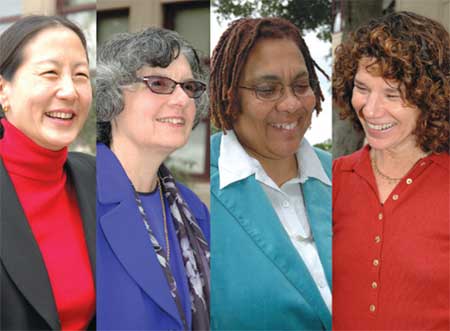
Women continue to feel the impact of changing legal developments in areas as disparate as violence against women, sexual harassment, discrimination at work, mothering and reproduction, families, women and the legal profession, education, and health.
Join this summit of top scholars from across the nation to explore these issues, the power of women’s stories, and what these stories teach us about law and social change.
Women and the Law Stories Conference Schedule
Law schools began offering Women and Law courses in the early 1970s. Since that time, many textbooks have examined law through the lens of feminist legal theory. Women continue to feel the impact of changing legal developments in areas as disparate as violence against women, sexual harassment, discrimination at work, mothering and reproduction, families, women and the legal profession, education, and health. Yet scholars have often neglected the power of women’s stories and the lessons these stories teach us about law and social change.
This conference focuses on the women whose lives led to these legal changes and who continue to inspire the need for further progress. It also celebrates WOMEN AND THE LAW STORIES (ELIZABETH M. SCHNEIDER & STEPHANIE M. WILDMAN, eds., Foundation Press) (forthcoming). Many panelists have contributed chapters to this volume. PDF version of the schedule.
8:00 a.m. Buffet breakfast
8:30 a.m. Welcome
Dean Donald J. Polden
Stephanie M. Wildman & Elizabeth M. Schneider
8:45 a.m. to 10:15 a.m. Panel I: Women: History, Identity, and Standard of Review
Nineteenth century laws revealed the role of women as different and inferior, viewing slave women as property and married women as the property of their husbands, losing their property & contract rights. The law contained examples of loss of women’s legal identity and physical autonomy, controlling women through sexual norms. Women responded by contesting the separation of the so-called public and so-called private spheres and by the struggle for suffrage and basic recognition of membership in the democratic community. Throughout this period, a standard of review for sex-based practices evolved in the Supreme Court. This panel provides an in depth look at some key developments.
Angela Harris (Berkeley) U. S. v. Cruikshank (co-author Rebecca Hall)
Historians often date early feminist history from the Seneca Falls Convention. That vision ignores the interconnection of racial justice and gender justice. U.S. v. Cruikshank is best known as a race case that arose in the context of terrorism directed at black men. This story details the brutal rapes of black woman who later came forward and testified before Congress in an effort to convince legislators to enact laws that would offer protection. Their Congressional victory was short-lived in the Reconstruction South; the Supreme Court gutted the law that their bravery engendered.
Patricia Cain (Santa Clara) & Jean Love (Santa Clara) In Re Marriage Cases
The California Supreme Court faced the question of whether it could constitutionally deny the protections, benefits, and obligations conferred by civil marriage to same sex couples. The drama of San Francisco Mayor Gavin Newsom’s mandate that the clerks’ office offer marriage licenses to same-sex couples and the stream of couples who sought the opportunity spawned this litigation. In six cases, consolidated under the name In Re Marriage cases, the court examined the issue under the state constitution’s promise of liberty, privacy, and equality. The story reviews California’s “unique and supportive history with respect to gay rights.”
Serena Mayeri (Penn) Frontiero v. Richardson
Developing constitutional jurisprudence to combat sex discrimination and to promote equality presented a challenge to the modern U.S. Supreme Court. Early constitutional cases marked the development and recognition of equality for women. Prior to Reed v. Reed the U.S. Supreme Court had never found a sex-based classification to be unconstitutional. Beginning in the 1970s with Reed v. Reed and Frontiero v. Richardson, the Court for the first time changed course.
Respondent and Moderator: Catherine Sandoval (Santa Clara)
10:15 a.m. to 10:30 a.m. Break
10:30 a.m. to Noon Panel II: Women and Work
To be in the workplace is to enter a male-defined world. The workplace remains one site where the U.S. cultural schizophrenia about women can be both revealed and contested. Women roles as mothers, sexual targets, or “ladies” emerge against the background of the job site. This panel examines those roles as they encounter workplace norms and the legal responses to those encounters.
Martha Chamallas (Ohio State) Price Waterhouse v. Hopkins
Ann Hopkins was the only female associate being considered for partnership at Price Waterhouse. Partners viewed Ms. Hopkins very differently. To some she was “‘an outstanding professional’ who had a ‘deft touch,’ a ‘strong character, independence and integrity.’” To others she was “sometimes overly aggressive, unduly harsh, difficult to work with, and impatient with staff.” One partner advised that plaintiff should “walk more femininely, talk more femininely, dress more femininely, wear make-up, have her hair styled, and wear jewelry.” The Supreme Court acknowledged the legal relevance of sex stereotyping, finding it present in this case.
Minna Kotkin (Brooklyn) Diversity and Discrimination: A Look at Complex Bias
Increased diversity in workplace demographics suggests that frequently disparate treatment in fact may be rooted in intersectional or “complex” bias. Complex bias provides a counter-narrative to the currently in vogue characterization of workplace discrimination as “subtle” or “unconscious.” Despite the common sense notion that the more “different” a worker is, the most likely she will encounter bias, empirical evidence shows that multiple claims—which may account for more than 50% of federal court discrimination actions—have even less chance of success than single claims. Courts need to pay more attention to social science research that delineates the nuanced stereotypes faced by complex bias claimants.
Stephanie M. Wildman (Santa Clara) Cal. Fed. v. Guerra
This case raised issues ranging from reproductive freedom in the context of pregnancy to the meaning of equality in the workplace. The Cal Fed case dramatically split the feminist legal community, with feminists disagreeing publicly about the meaning of workplace equality. The debate, often framed in terms of “equal” versus “special” treatment, scarred many long standing alliances and the issues still resonate today.
Respondent and Moderator: Deborah Moss-West (Santa Clara)
Noon to 12:15 Break
12:15 p.m. to 1:15 p.m. Introduction of Keynote Speaker: Marina Hsieh (Santa Clara)
Keynote: Michelle Oberman (Santa Clara)
“Hot Teen Sex” and the Government’s Struggle to Regulate Adolescent Sexuality: The Stories Behind the Story of In re John Z.
The renowned 2003 California Supreme Court case of In re John Z. commonly is taught to illustrate a woman’s right to withdraw her consent in the midst of a sexual act, thus transforming the act from sex to rape. In truth, the doctrinal point is uncontroversial, and John Z’s case is interesting only because it illustrates the way legal principles collide with messy facts in the real world of contested sexual interactions among acquaintances—particularly among adolescents. By interviewing the legal players involved in the prosecution of John Z., Professor Oberman is able to tell a fuller story about the case. She then uses this story to inform a meditation on common themes in adolescent sexual encounters, on the inevitability of cognitive bias among adults reviewing these cases, and on the personal as well as the political stakes in the struggle to regulate adolescent sexual interactions.
1:15 p.m. to 1:45 p.m. Box lunches available and break
1:45 p.m. to 3:15 p.m. Panel III: Women: Health and Safety
Democracy requires that members of society to be able to participate in self-government. Some argue that requires the state to provide some modicum of well-being to its members in order to enable that participation. This panel focuses on women’s capacity to live a healthy and safe life and the role of law in enabling or hampering that aspiration.
Lisa Ikemoto (UC Davis) Relf v. Weinberger
A doctor sterilized the Relf sisters, Mary Alice, age 12, and Minnie, age 14, without either their or their parents’ knowledge or consent. Sixteen year old Katie escaped by locking herself in her bedroom. The ensuing litigation, Relf v. Weinberger, highlighted the epidemic of federal involvement in involuntary sterilizations among minority, low-income, immigrant women, often living with disabilities. Exerting social control over minority women and girls of childbearing age had a long history that preceded eugenics as a movement to manipulate the human gene pool. But the case was also a product of its era, the 1970s period of retrenchment against the demonstrations and struggle for social change of the 1960s.
Sylvia Law (NYU) Harris v. McRae
Roe v. Wade established a right of privacy for women in consultation with their physician to decide whether to terminate a pregnancy. Harris v. McRae raised the issue of whether that constitutional right would extend to poor women, who would fund their abortion through Medicaid. Harris v. McRae upheld the denial of funding for medically necessary abortions, excepting only those procedures which threatened the mother’s life. A woman’s freedom of choice carried with it no constitutional entitlement to the financial resources necessary to avail herself of the full range of protected choices.
Margalynne Armstrong (Santa Clara) Planned Parenthood v. Casey
Casey marked a shift in privacy jurisprudence, making clear that personal autonomy should be protected from unwarranted state intrusion. The Supreme Court held that a state may enact legislation governing abortion if the regulation causes no “undue burden” to a woman’s liberty to terminate pregnancy prior to viability. The Casey plurality found only one unduly burdensome aspect of the Pennsylvania statute at issue, the spousal notification provision. The trial record’s inclusion of testimony regarding the impact of the notification requirement on abused women was instrumental in the Court’s ability to view spousal notification as an offense to a woman’s personal dignity and autonomy.
Zanita Fenton (Miami) Castle Rock v. Gonzales
Violence against women is a problem that advocates have long struggled to address using the courts and other vehicles. Unfortunately, Jessica Gonzales was unable to obtain redress in U.S. Courts for herself or for the murder of her three daughters for the state’s failure to protect. Castle Rock v. Gonzalez is much more than Deshaney redux. Nevertheless, Castle Rock does not adequately deal with concepts of property and their relationship to violence. It also discusses, but does not address, the state’s role in the history of violence against women nor the reasons that deference to police discretion is problematic in these cases. With this inability to get redress, Jessica continues to seek justice at the International level for human rights violations.
Respondent and Moderator: Martha Field (Harvard)
3:15 p.m. to 3:30 p.m. Break
3:30 p.m. to 5:00 p.m. Roundtable on Women in the Legal Profession and the Academy
From early cases seeking to integrate law firms, like Blank v. Sullivan and Cromwell, to modern issues of retention and advancement, women continue to contest their role in the legal profession and academy. Women who serve as judges face hurdles as well. Panelists will discuss their observations with each other and the audience.
Panelists include: Cynthia Grant Bowman (Cornell), Lynne Henderson (UNLV), Paula Monopoli (Maryland), and Stacy Leeds (Kansas).
Respondent and Moderator: Liz Schneider (Brooklyn)
5:00 p.m. Reception
Speaker bios – Women and the Law Stories Conference
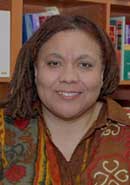 Margalynne Armstrong (Santa Clara)
Margalynne Armstrong (Santa Clara)
Margalynne Armstrong is an Associate Professor of Law and an Associate Academic Director of the Center for Social Justice and Public Service at Santa Clara University. Prior to teaching at Santa Clara Law, she practiced in public employment law, was a staff attorney with the Legal Aid Society of Alameda County, and directed the Academic Support Program at Boalt Hall. Professor Armstrong teaches Property, Race and Racism in the Law, and Constitutional Law.
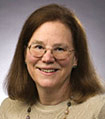 Cynthia Grant Bowman (Cornell)
Cynthia Grant Bowman (Cornell)
Cynthia Grant Bowman is the Dorothea S. Clarke Professor of Feminist Jurisprudence at Cornell Law School. A graduate of Swarthmore College, she has a Ph.D. in political science from Columbia University and a J.D. from Northwestern University School of Law. She has published widely in diverse areas having to do with family law and other topics concerning law and gender and is co-author of FEMINIST JURISPRUDENCE: TAKING WOMEN SERIOUSLY(West Publishing 3d ed. 2006). Her most recent books are UNMARRIED COUPLES, LAW, AND PUBLIC POLICY (Oxford University Press 2010), and DAWN CLARK NETSCH: A POLITICAL LIFE (Northwestern University Press 2010). Professor Bowman’s Law Stories chapter discusses Blank v. Sullivan & Cromwell and the entry of women into Wall Street law firms in the mid-1970s.
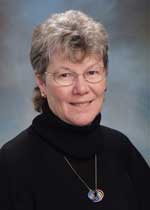 Patricia Cain (Santa Clara)
Patricia Cain (Santa Clara)
Patricia Cain is the Inez Mabie Distinguished Professor of Law at Santa Clara University. Before joining the Santa Clara faculty in 2007, she served as Vice Provost and Aliber Family Chair in Law at the University of Iowa. She was a member of the law faculty at the University of Texas for 17 years before moving to the University of Iowa College of Law in 1991. She is a graduate of Vassar College (A.B.) and the University of Georgia (J.D.). A member of the American Law Institute and prior board member of Lambda Legal Defense and Education Fund, she is a former co-president (with Jean Love) of the Society of American Law Teachers (SALT). She is currently serving as Treasurer of SALT. Professor Cain teaches courses in Federal Taxation, Wills and Estates, Property, Feminist Legal Theory, and Sexuality and the Law. She is a frequent lecturer on tax planning for same-sex couples and has published law review articles in journals such as the Iowa Law Review, the Southern California Law Review, the Virginia Law Review, the Wisconsin Law Review and the Journal of Legal Education. She also has published several book chapters, including “stories” in both TAX STORIES AND PROPERTY STORIES, as well as monographs and books, including RAINBOW RIGHTS: THE ROLE OF LAWYERS AND COURTS IN THE LESBIAN AND GAY CIVIL RIGHTS MOVEMENT (Westview Press 2000) and SEXUALITY LAW, Second Edition (with Arthur S. Leonard) (Carolina Academic Press 2009).
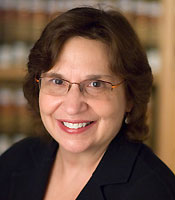
Martha Chamallas (Ohio State)
Martha Chamallas holds the Robert J. Lynn Chair in Law at the Ohio State University in Columbus, Ohio where she teaches Gender and the Law, Torts, and Employment Discrimination. Prior to joining the Ohio State faculty, she was on the faculty at LSU, the University of Pittsburgh and the University of Iowa and has held distinguished visiting Chairs at Washington University, the University of Richmond and Suffolk University. At Iowa, she was Chair of the Women’s Studies Program. In 2007, she was named a University Distinguished Lecturer at Ohio State. Her book, INTRODUCTION TO FEMINIST LEGAL THEORY (Aspen Publishers, 2d edition 2003) has been widely adopted for law courses and seminars and interdisciplinary offerings on gender. In torts, she has written extensively about hidden biases in the calculation of damages and the low status accorded to non-economic harms, such as emotional distress and relational injuries. In anti-discrimination law, she has published articles on sexual harassment, constructive discharge, pay equity, tokenism, unconscious race and gender bias and the processes of devaluation. Her articles and essays have appeared in numerous journals, including Michigan Law Review, University of Pennsylvania Law Review, Southern California Law Review, University of Chicago Law Review and William and Mary Law Review. Her forthcoming book – THE MEASURE OF INJURY: RACE, GENDER AND TORT LAW – (co-authored with Jennifer B. Wriggins) will be published by New York University Press in May 2010. She is a member of the Litigation Committee for the American Association of University Professors and the American Law Institute.
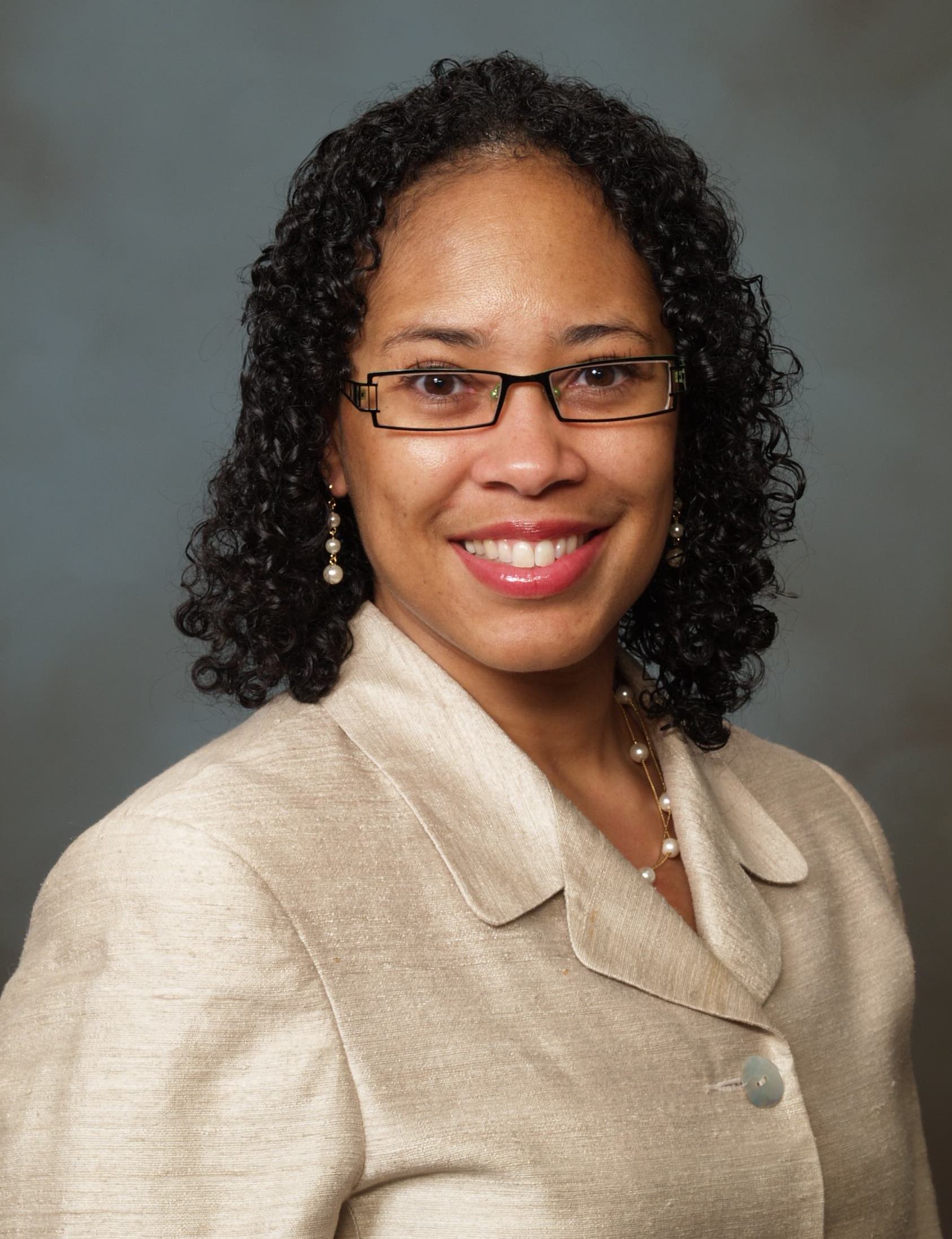
Zanita E. Fenton (Miami)
Zanita E. Fenton is Professor of Law at the University of Miami School of Law, where she teaches courses in Constitutional Law, Family Law, Torts, Race and the Law, and seminars in Critical Race Feminism and in the Reproductive Technologies.
Professor Fenton’s scholarly interests cover issues of subordination, focusing on those of race, gender and class. She explores these issues in the greater contexts of understanding violence and in the attainment of justice. She writes in these areas and regularly speaks concerning these and related topics in both national and international fora. She has long served as an advocate and consultant for survivors of domestic abuse. Professor Fenton received an A.B. from Princeton University and a J.D. from Harvard Law School, where she served as editor-in-chief of the Harvard BlackLetter Journal. After law school, she practiced briefly in the New York firm of Cleary, Gottlieb, Steen & Hamilton before she served as a law clerk to the Honorable Edward R. Korman, United States District Court for the Eastern District of New York.
 Martha A. Field (Harvard)
Martha A. Field (Harvard)
Martha A. Field has been a Professor of Law at Harvard Law School since 1978, and is now the Langdell Professor of Law. She teaches courses in Constitutional Law, Federal Courts, Disability, Bioethics and Family Law, and in other subjects. She received her B.A. from Harvard and her J.D. from the University of Chicago. Upon graduation in 1968, she served as a law clerk on the United States Supreme Court, working with Justice Abe Fortas during his unsuccessful hearings to be confirmed as Chief Justice and continued working with him until his resignation the next May. She then spent six weeks working for Chief Justice Warren, followed by another six weeks working with Chief Justice Burger. She was the only woman clerk during that Term and one of the first women to obtain a Supreme Court clerkship. After the Supreme Court, Professor Field joined the law faculty of the University of Pennsylvania (where she was the first and only woman professor for several years and the first woman to receive tenure). She remained at Penn until moving to Harvard Law School in 1978 as their only tenured woman professor.
.jpg) Angela P. Harris (Berkeley)
Angela P. Harris (Berkeley)
Angela P. Harris is Baldy Distinguished Scholar at the University at Buffalo, State University of New York, and Professor of Law, University of California-Berkeley. She has written widely in the field of critical jurisprudence and is co-author of several casebooks, including CRIMINAL LAW: CASES AND MATERIALS (with Cynthia Lee), ECONOMIC JUSTICE (with Emma Coleman Jordan), and RACE AND RACES: CASES AND RESOURCES FOR A DIVERSE AMERICA (with Richard Delgado, Juan Perea, Jean Stefancic, and Stephanie Wildman).
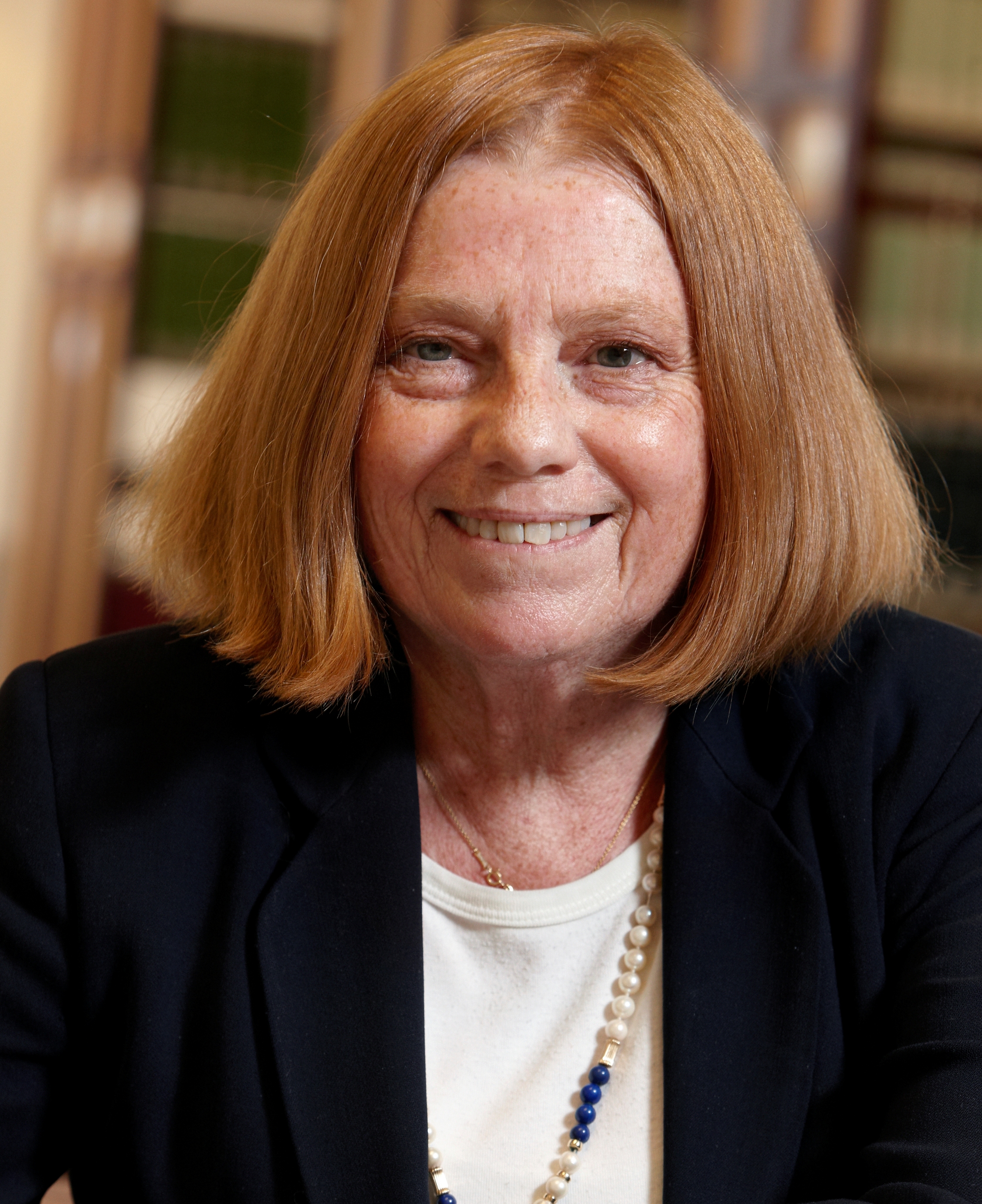 Lynne Henderson (UNLV)
Lynne Henderson (UNLV)
Lynne Henderson is a Professor of Law at UNLV-Boyd School of Law. She earned her AB in Political Science from Stanford University in 1975 and her JD from Stanford Law School in 1979. She worked briefly as a DDA and then practiced criminal defense and other matters as a DPD and in private practice. Her articles and essays have appeared in Stanford Law Review, Michigan Law Review, Indiana Law Journal, Law & Philosophy, Berkeley Women’s Law Journal (now Berkeley Journal of Gender, Law and Justice), Texas Women’s Law Journal, Law & Social Inquiry, Law & Society Review, and other publications. She teaches Constitutional Law I and II, Criminal Law, and a seminar on Violence Against Women. Her research interests span from victim’s rights to violence against women and children to judicial decision-making and more recently have focused on the decisions of torture detainees in the “War on Terror.”
.jpg) Lisa C. Ikemoto (Davis)
Lisa C. Ikemoto (Davis)
Lisa C. Ikemoto is on the faculty at University of California – Davis School of Law. She teaches Bioethics, Health Care Law, Public Health Law, Reproductive Rights, Law & Policy, Marital Property, and Property. Her research areas include bioethics, reproductive justice, health care law, and public health law. More specifically, she focuses on the ways that race and gender mediate access to and impacts of technology use, health care, and law. She has written about race and gender disparities in health care, genetic and reproductive technology use, the regulation of fertility and pregnancy.
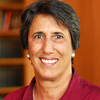
Minna J. Kotkin (Brooklyn)
Minna J. Kotkin joined the Brooklyn Law School faculty in 1984 and is the director of the BLS Employment Law Clinic. She also has taught New York practice, civil procedure, administrative law, civil rights law, and interviewing and counseling.
Professor Kotkin has written and lectured extensively on issues of employment discrimination and clinical legal education. Her recent articles include Diversity and Discrimination: A Look at Complex Bias (William & Mary Law Review, 2009), Outing Outcomes: An Empirical Study of Confidential Employment Discrimination Settlements (Washington and Lee Law Review, 2007), and Invisible Settlements, Invisible Discrimination (North Carolina Law Review, 2006). Professor Kotkin has been a visiting scholar at New York University School of Law, University of East London, and the University of Cape Town.
She has served as the chair of the Association of American Law Schools’ Section on Litigation, and Section on Clinical Legal Education, on the steering committee of the Association’s Equal Justice Project, and on the Board of Editors of the Clinical Law Review. She currently serves on the board of directors of the Global Alliance for Justice Education, Disability Advocates, Inc. and the United State District Court, Eastern District of New York Litigation Fund, and has previously been a board member of several legal services organizations.
Before joining the Brooklyn faculty in 1984, Professor Kotkin was the litigation director of New York Lawyers for the Public Interest and a litigation associate at Proskauer Rose. She was graduated from Rutgers University Law School – Camden, where she was Editor-in-Chief of the law review, and Barnard College.
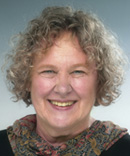 Sylvia A. Law (NYU)
Sylvia A. Law (NYU)
Sylvia A. Law has been one of the nation’s leading scholars in the fields of health law, women’s rights, poverty, and constitutional law for three decades. She has played a major role in dozens of civil rights cases before the U.S. Supreme Court and in lower state and federal courts, and has testified before Congress and state legislatures on a range of issues. In 1984, Law became the first lawyer in the United States selected as a MacArthur Prize Fellow. She is the co-director, with Norman Dorsen, of the Arthur Garfield Hays Program at New York University School of Law. She has been active in the Society of American Law Teachers, served as president of the organization from 1988-1990 and was honored by the organization as Law Teacher of the Year in 2001. In 2004, Prof. Law was elected to the American Academy of Arts and Sciences.

Stacy L. Leeds (Kansas)
Stacy L. Leeds is Professor of Law and Director of the Tribal Law and Government Center at the University of Kansas School of Law. Professor Leeds began her law teaching career at the University of Wisconsin School of Law where she served as a William H. Hastie Fellow. She is the recipient of several awards for her teaching, scholarship and service including the Alphonse Fletcher, Sr. Fellowship (2008), the Clyde Ferguson Award (AALS Section on Minority Groups 2006), and the Immel Award for Teaching Excellence (2005). She is a graduate of Washington University in St. Louis (BA), the University of Tulsa College of Law, (JD) and the University of Wisconsin School of Law (LLM). Professor Leeds is a former Cherokee Nation Supreme Court Justice, the only woman and youngest person to have served in that capacity. She has also served as a judge and consultant for several other tribal governments including: Prairie Band Potawatomi Nation, Muscogee (Creek) Nation, Kickapoo Tribe of Oklahoma, Kaw Nation, and Turtle Mountain Band of Chippewa Indians. She is a citizen of the Cherokee Nation.
 Jean C. Love (Santa Clara)
Jean C. Love (Santa Clara)
Jean C. Love is the John A. and Elizabeth H. Sutro Professor of Law at Santa Clara University. Before joining the Santa Clara faculty in 2007, she was the Martha-Ellen Tye Distinguished Professor of Law at the University of Iowa. She served as a member of the faculty at UC-Davis for 19 years before moving to the University of Iowa College of Law in 1991. She received a B.A. and a J.D. from the University of Wisconsin. She teaches constitutional law, remedies, and torts. She is the recipient of three Distinguished Teaching Awards (from the University of Iowa, the University of Texas, and the UC-Davis School of Law). A member of the American Law Institute, she is a former co-president (with Patricia Cain) of the Society of American Law Teachers (SALT). She has chaired the Women in Legal Education Section and the Gay and Lesbian Legal Issues Section (as it was then known), as well as the Remedies Section and the Torts and Compensation Systems Section of the Association of American Law Schools. She is a frequent lecturer on bringing issues of race, sex, and sexual orientation into the law school curriculum. She has published several articles and book reviews with a focus on gender and sexual orientation, including Discriminatory Speech and the Tort of Intentional Infliction of Emotional Distress, 47 Washington & Lee Law Review 123 (1990) and The Synergistic Evolution of Liberty and Equality in Marriage Cases Brought by Same-Sex Couples in State Courts, 13 Journal of Gender Race and Justice 276 (2010). She is also the author of two casebooks, EQUITABLE REMEDIES, RESTITUTION AND DAMAGES (7th ed. 2005) and AN INTRODUCTION TO THE ANGLO-AMERICAN LEGAL SYSTEM (4th ed. 2004). She would like to thank her co-author, Pat Cain, for making all of her dreams come true when they were legally married in the State of California on October 4, 2008.
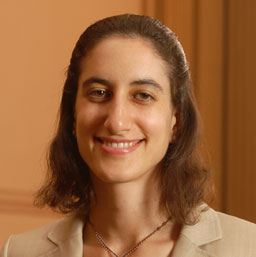 Serena Mayeri (Penn)
Serena Mayeri (Penn)
Serena Mayeri’s scholarship focuses on the historical impact of progressive and conservative social movements on legal and constitutional change. She is currently at work on a book, tentatively titled REASONING FROM RACE: LEGAL FEMINISM IN THE CIVIL RIGHTS ERA, which explores how lawyers, judges, activists, politicians, and ordinary citizens reasoned about the relationship between racial justice and women’s rights during the 1960s and 1970s. In addition to anti-discrimination law and legal history, Professor Mayeri’s research and teaching interests include family law and policy. She earned a J.D. and Ph.D. in history from Yale, where her doctoral dissertation received the George Washington Eggleston Prize and the Organization of American Historians’ Lerner-Scott Prize.
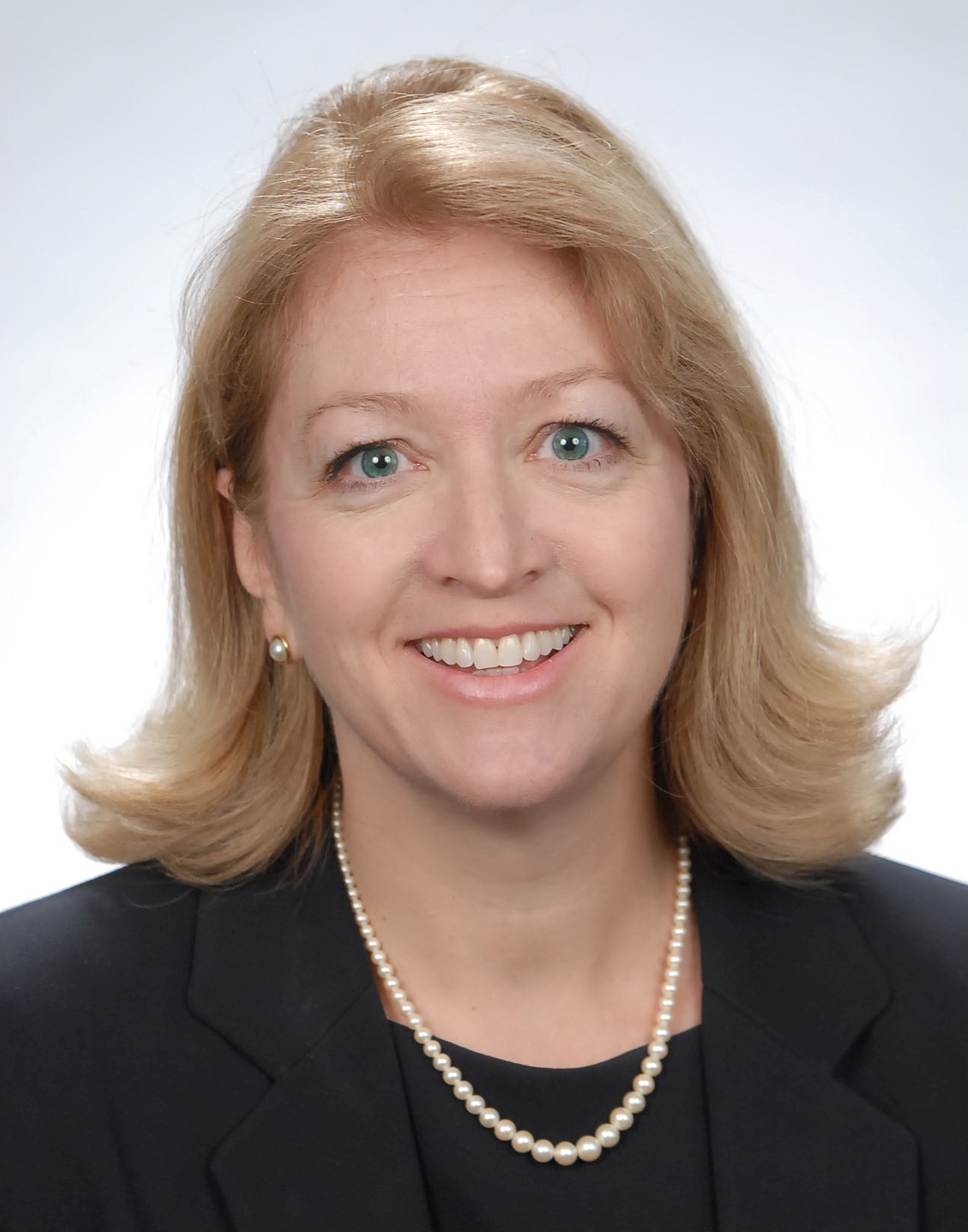
Paula Monopoli (Maryland)
Paula Monopoli is Professor of Law and Marbury Research Professor at the University of Maryland School of Law, where she founded the Women, Leadership & Equality Program. Professor Monopoli received a B.A, cum laude, from Yale College in 1980, and a J.D. from the University of Virginia School of Law in 1983. She teaches Property, Trusts & Estates and a seminar in Gender and Leadership. Her publications include Gender and Constitutional Design in the Yale Law Journal, Gender and Justice in the Georgetown Journal of Gender and Law and a book on the intellectual history of the probate reform movement, AMERICAN PROBATE: PROTECTING THE PUBLIC, IMPROVING THE PROCESS (Northeastern University Press 2003). Professor Monopoli speaks often on the intersection of gender and the law. She is an elected member of the American Law Institute and an Academic Fellow of the American College of Trust & Estate Counsel. Professor Monopoli was the 2004 Outstanding Professor of the Year at Maryland.
 Deborah Moss-West (Santa Clara)
Deborah Moss-West (Santa Clara)
Deborah Moss-West received her J.D. from Santa Clara Law in 1994 and has been Assistant Director at the Center for Social Justice and Public Service since fall 2008. The Center provides students with a legal education that instills a commitment to social justice, public interest, and public service.
Prior to joining Santa Clara Law, Ms. Moss-West worked at the East Bay Community Law Center (EBCLC) for eight years, serving as Deputy Director and Development Officer. Ms. Moss-West was a frequent contributor to EBCLC’s clinical companion course, Community Law Practice, taught at Berkeley Law, and currently teaches in the Paralegal Program at Merritt College. During her career, Ms. Moss-West has held various positions at Allstate Insurance Company and AT&T/SBC in the areas of Human Resources, Civil Litigation, and Contracting.
Ms. Moss-West is passionate about bringing resources to underserved communities both through her work at Santa Clara Law and with other non-profit groups. Ms. Moss-West provides non-profit and small business consulting services and organizes community events and legal educational forums through her local church. In April 2009, Ms. Moss-West was selected as a participant in the Grassroots Institute for Fundraising Training’s (GIFT) distinguished Training-for-Trainers. GIFT teaches fundraising skills to non-profit organizations from a political framework that underscores the role that the community plays in building strong organizations and a strong social justice movement. Ms. Moss-West has served on a number of non-profit boards, and is currently a Board Member of Eden Information and Referral, Inc.
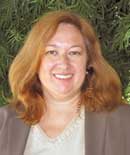 Professor Catherine Sandoval
Professor Catherine Sandoval
Catherine Sandoval is an Associate Professor of Law at Santa Clara University. She teaches Communications Law, Antitrust, and Contracts. She is co-authoring a casebook on Communications Law with Professor Allen Hammond IV and Professor Len Baynes, to be published by Aspen Publishers. She published a study in 2009 on the status of minority-owned commercial radio stations, finding a strong nexus between minority station ownership and minority-oriented program content.
Prior to her appointment at Santa Clara University, Professor Sandoval served for three years as the Undersecretary and Staff Director of the State of California’s Business, Transportation and Housing Agency. Previously, she was the Vice-President and General Counsel of a Spanish-language broadcasting company, Z-Spanish Media Corporation. For nearly six years Professor Sandoval was a senior official at the FCC and was the Director of the FCC’s Office of Communications Business Opportunities. At the Law Offices of Munger, Tolles & Olson, Professor Sandoval was a litigation associate. Professor Sandoval clerked for Judge Dorothy W. Nelson on the 9th Circuit Court of Appeals.
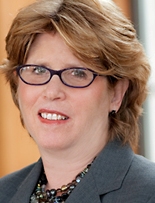 Elizabeth M. Schneider (Brooklyn)
Elizabeth M. Schneider (Brooklyn)
Elizabeth M. Schneider is the Rose L. Hoffer Professor of Law at Brooklyn Law School, and has also been Visiting Professor of Law at Columbia and Harvard Law Schools. Professor Schneider teaches and writes in the fields of federal civil litigation, gender, law and domestic violence. She is the co-editor of WOMEN AND THE LAW STORIES (Foundation Press, forthcoming 2010) (with Stephanie M. Wildman), and is the author of BATTERED WOMEN AND FEMINIST LAWMAKING (Yale University Press 2000), which won the 2000 Association of American Publishers Professional-Scholarly Publishing Award in Law, co-author of the law school casebook DOMESTIC VIOLENCE AND THE LAW: THEORY AND PRACTICE (Foundation Press, 2nd ed. 2008) (with Cheryl Hanna, Judith G. Greenberg and Clare Dalton). Her most recent law review articles are: The Changing Shape of Federal Pretrial Practice: The Disparate Impact on Civil Rights and Employment Discrimination Cases, 158 U. PA. L. REV. 517 (2010); Domestic Violence Law Reform in the Twenty-First Century: Looking Back and Forward, 42 FAM. L.Q. 353 (2008); and The Dangers of Summary Judgment: Gender and Federal Civil Litigation, 59 RUTGERS L. REV.705 (2007). She is a member of the American Law Institute, and a frequent commentator for both print and broadcast media, and has been Chair of the Judicial-Academic Network of the National Association of Women Judges (NAWJ). She lectures widely in the United States and abroad on issues of gender and law, and was a consultant for the Secretary-General’s In-Depth Study of All Forms of Violence Against Women, presented to the United Nations General Assembly in 2006. Professor Schneider graduated from Bryn Mawr College cum laude with Honors in Political Science, was a Leverhulme Fellow at The London School of Economics and Political Science where she received an M.Sc. in Political Sociology, and has a J.D. from New York University Law School, where she was an Arthur Garfield Hays Civil Liberties Fellow. She clerked for the late United States District Judge Constance Baker Motley of the Southern District of New York.
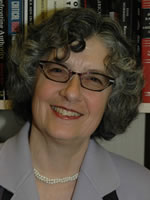 Stephanie M. Wildman (Santa Clara)
Stephanie M. Wildman (Santa Clara)
Stephanie M. Wildman received the 2007 Great Teacher Award from the Society of American Law Teachers, the largest national organization of law school faculty. She was the founding director of the Center for Social Justice at the University of California at Berkeley School of Law (Boalt Hall). She taught for 25 years at the University of San Francisco School of Law. She received her A.B. (1970) and her J.D. (1973) from Stanford University. She clerked for Judge Charles M. Merrill of the United States Court of Appeal for the Ninth Circuit and worked as a staff attorney for California Rural Legal Assistance. In 1983 she was elected to membership in the American Law Institute. She has been a visiting professor at U.C. Berkeley School of Law (Boalt Hall), U.C. Davis School of Law, Hastings College of the Law, Santa Clara University School of Law, and Stanford Law School.
Professor Wildman’s book, PRIVILEGE REVEALED: HOW INVISIBLE PREFERENCE UNDERMINES AMERICA, (with contributions by Margalynne Armstrong, Adrienne D. Davis, & Trina Grillo) won the 1997 Outstanding Book Award from the Gustavus Meyers Center for Human Rights. Her books, RACE AND RACES: CASES AND RESOURCES FOR A DIVERSE AMERICA 2d (with Richard Delgado, Angela A. Harris, and Juan F. Perea) (2007) and SOCIAL JUSTICE: PROFESSIONALS COMMUNITIES AND LAW (with MARTHA R. Martha R. Mahoney and John O. Calmore) (2003) are popular Thomson-West textbooks. She also contributed to MASTERING TORT LAW: CASES, PERSPECTIVES, AND PROBLEMS (with Nicolas P. Terry, Frank L. Maraist, Frank Mcclellan, Thomas C. Galligan, Jr., Phoebe A. Haddon, and Michael Rustad)(2007). She is past co-president of the Society of American Law Teachers and served on the Association of American Law Schools (AALS) Executive Committee. Professor Wildman teaches Law and Social Justice, Gender and Law, and Torts. Her scholarship emphasizes systems of privilege, gender, race, and classroom dynamics.
Michelle Oberman (Santa Clara)
Michelle Oberman is a graduate of the University of Michigan Schools of Law and Public Health. She is Professor of Law at Santa Clara University School of Law, where she specializes in the area of health policy and the law, with particular emphasis on the intersection of women’s health, poverty, criminal law and public health issues.
A former chair of the American Association of Law School’s Section on Law and Medicine, Professor Oberman lectures to a broad set of audiences, including legal, medical, undergraduate and community-based interest groups. In addition to her academic experience, Professor Oberman maintains an affiliation with a variety of health care organizations, and has served on the Institutional Review Board of Children’s Memorial Hospital in Chicago, and the Board of Directors of the Health and Medicine Policy Research Group. She served as a community representative on the University of California at San Francisco Campus Committee on Gamete, Embryo, and Stem Cell Research (GESCR) (2005-2008).
As a legal scholar with a background in public health, Professor Oberman’s research focuses on legal and ethical issues relating to adolescence, sexuality, pregnancy and motherhood. In recent years, she has written about statutory rape, postpartum mental health issues and the law, filicide, substance abuse by pregnant women, and the fiduciary obligations of health care providers to their patients. In addition to teaching in the area of health law, Professor Oberman teaches both Criminal Law and Contracts. Her current research employs ethnographic methodology in search of a deeper cross-cultural understanding of issues involving women’s health and the law.